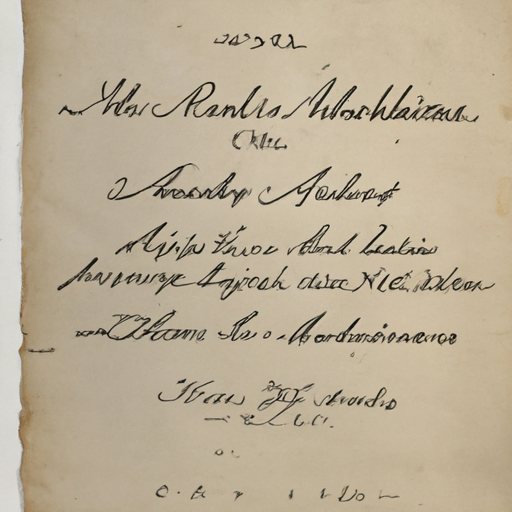“It would require the whole of the longest Life, to begin at Twenty Years of Age, to assemble from all the Nations and Parts of the Globe in which they are deposited, the Documents to form a compleat History of the American War, because it is nearly the History of Mankind for the whole Epocha of it. The History of France Spain Holland, England and the Neutral Powers, as well as America are at least comprized in it. Materials must be collected from all these Nations, and the most important Documents of all, Such as Shew the Characters of Actors and the Secret Springs of Action, are yet locked up in Cabinets and in Cyphers.”
“…as the Controversy and the War, began in the Massachusetts Bay, the principal Province of New England, their Institutions had the first operation. Four of those Institutions, Should be Studied and fully examined by any one, who would write with any Intelligence upon the Subject because they produced the decisive Effect, not only by the first decisions of the Controversy in publick Councils, and the first determinations to resist in Arms, but by Influencing the Minds of the other Colonies to follow their Example and to adopt, in a greater or less degree the Same Institutions and Similar Measures.
The four Institutions intended are, 1. the Towns. 2. The Churches. 3. The Schools. and 4. the Militia.
1. The Towns are certain Pieces of Land or Districts of Territory, into which the Massachusetts Bay, Connecticut, New Hampshire and Rhode Island are divided.— Each Town contains upon an Average Six miles or two Leagues Square. The Inhabitants who live within its Limits are erected by Law into a Corporation or Body Politick and are vested with certain Powers and Priviledges, Such as repairing the Roads, maintaining the Poor, choosing the Select Men Constables Collectors of Taxes, and other Officers, and above all their Representatives in the Legislature; and that of Assembling, whenever warned to it by their select Men, in Town Meeting to deliberate upon the publick affairs of the Town, or to instruct their Representatives. The Consequence of this Institution has been, that all the Inhabitants have acquired from their Infancy, an Habit of debating, deliberating and judging of public Affairs. it was in these Town Meetings that the Sentiments of the People were first formed, and their Resolutions taken from the Beginning to the End of this Controvesy and War.
2. The Churches are the religious Societies, which comprehend the whole People. each Town composes one Parish and one Church at least. most of them have more than one, and many of them Several. Each Parish has a Meeting house and a Minister, Supported at its own Expence. The Constitutions of the Churches are extreamly popular and the Clergy have little Authority or Influence, except such as their own Piety, Virtues and Learning naturally give them. They are chosen by the People of the Parish and ordained by the neighbouring Clergy. They all marry and have families, and live with their Parishes in mutual Friendship and good Offices. They visit the sick are charitable to the Poor, attend all Marriages & Funerals and preach, twice on every sunday. The least Reproach to their moral Character, ruins their Influence and forfeits their Livings, so that they are a wise virtuous and pious set of Men. Their sentiments are generally popular and they are zealous Friends of Liberty.
3. The Schools are in every Town. By an early Law of the Colony, evey Town consisting of Sixty Families, is obliged, under a Penalty to maintain constantly a School House and a school Master, who teaches Reading, Writing Arithmetick and the Rudiments of Latin and Greek. To this public school the Children of all the Inhabitants poor as well as rich, have a Right to go. In these Schools are formed schollars for the Colleges at Cambridge New Haven, Warwick and Dartmouth, and in those Colledges are educated, Masters for the schools, Ministers for the Churches, Practitioners in Law and Physick, and Magistrates and officers for the Government of the Country.
4. The Militia comprehends the whole People.— By the Law of the Land every Male Inhabitant between Sixteen and Sixty Years of Age is enrolled in a Company and a Regiment of Militia, compleatly organized with all its officers, is obliged to keep at his own Expence constantly in his House, a Firelock in good order, a Powder Horn with a Pound of Powder, twelve Flynts four and Twenty Bullets, a Cartouch Box and an Havresack.—so that the whole Country is ready to march for their Defence at a short Warning. The Companies and Regiments are obliged to assemble certain Times of the Year, at the Command of their Officers, for the View of their Arms and Ammunition and to go through the military Exercises.
Thus, Sir you have a Brief Sketch of the four Principal Sources of that Wisdom in Council, and that skill and Bravery in War, which have produced the American Revolution and which I hope will be Sacredly preserved as the foundations of a free, happy and prosperous People.”
“III. To the Abbé de Mably, 15 January 1783,” Founders Online, National Archives, https://founders.archives.gov/documents/Adams/06-14-02-0111-0004. [Original source: The Adams Papers, Papers of John Adams, vol. 14, October 1782–May 1783, ed. Gregg L. Lint, C. James Taylor, Hobson Woodward, Margaret A. Hogan, Mary T. Claffey, Sara B. Sikes, and Judith S. Graham. Cambridge, MA: Harvard University Press, 2008, pp. 172–180.]

